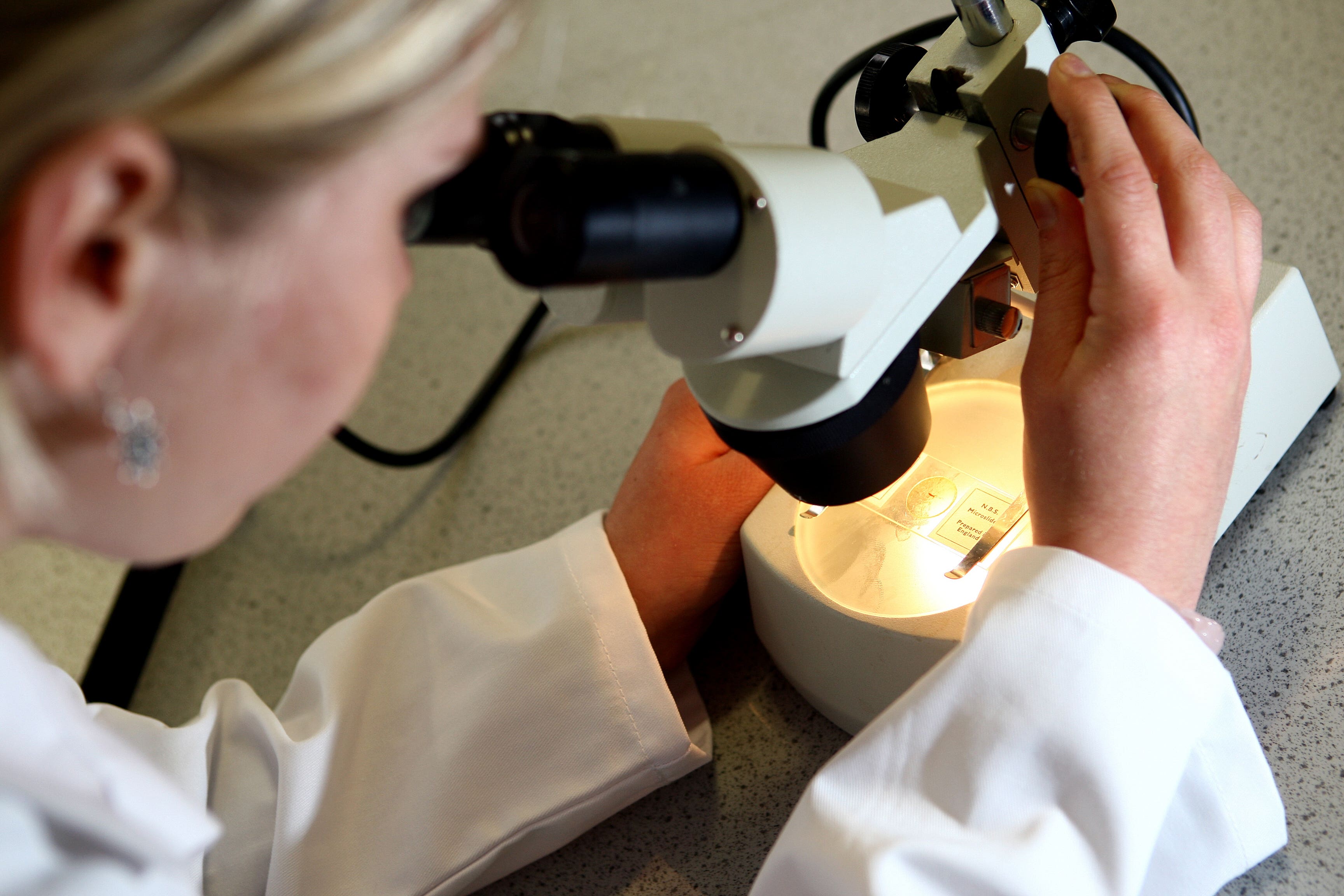New treatment improves outcomes for children with rare cancer
The parents of a schoolboy diagnosed with the rare cancer say he owes his life to the clinical trial which tested the new approach.

Your support helps us to tell the story
From reproductive rights to climate change to Big Tech, The Independent is on the ground when the story is developing. Whether it's investigating the financials of Elon Musk's pro-Trump PAC or producing our latest documentary, 'The A Word', which shines a light on the American women fighting for reproductive rights, we know how important it is to parse out the facts from the messaging.
At such a critical moment in US history, we need reporters on the ground. Your donation allows us to keep sending journalists to speak to both sides of the story.
The Independent is trusted by Americans across the entire political spectrum. And unlike many other quality news outlets, we choose not to lock Americans out of our reporting and analysis with paywalls. We believe quality journalism should be available to everyone, paid for by those who can afford it.
Your support makes all the difference.A new treatment for a rare form of children’s cancer – which combines anti-tumour drugs with chemotherapy – improves the chances of patients, a trial has found.
The approach targets neuroblastomas, a rare form of cancer which develops in nerve cells.
Combining anti-angiogenic drugs, which block tumours from forming blood vessels, alongside various chemo drugs leads to more young people seeing their tumours shrinking, the Cancer Research UK Clinical Trials Unit at the University of Birmingham has found.
It was our last hope, we were desperate
Some 26% of those treated with Bevacizumab saw an improvement, compared with 18% in the control group, the researchers said.
Patients who received the drug also had better one year progression-free survival rates.
The findings, published in the Journal of Clinical Oncology, saw 160 young people aged one to 21 from 43 hospitals in 11 European countries randomised, with half receiving the anti-angiogenic drug called Bevacizumab on top of conventional therapy.
The parents of Birmingham schoolboy Abdullah Mir, who was given a slim chance of survival after being diagnosed with the rare cancer in 2017, say he owes his life to the clinical trial after two different rounds of chemotherapy drugs failed.
His mother, Bushra Mir, said: “It was our last hope. We were desperate because he’d had two lots of chemotherapy that hadn’t shrunk his tumour at all.
“There were no other options so we signed up thinking that, even if it didn’t benefit Abdullah, it might help someone else.”
After eight months of treatment, 10-year-old Abdullah is now a keen footballer and Manchester United fan who attends Shirelands Technology Primary School in Sandwell.
Simon Gates, Professor of Biostatistics and Clinical Trials at the University of Birmingham – and senior lead author of the paper, said the trial provided “very exciting results”.
“These results hopefully get us closer to finding treatments for children who develop neuroblastomas,” he added.
“Currently, the outcomes are really poor for children who get this horrible cancer and so even seemingly small increases in the chance that a patient is going to be able to shrink their tumours is significant.”
Dr Laura Danielson, children and young people’s research lead at Cancer Research UK who part funded the trial, said: “These incremental improvements in treatment can make all the difference for cancer patients and it’s fantastic to see that the standard of care across the UK has already been updated based on these results giving children with neuroblastoma more treatment options.
“Meanwhile, more work is still needed to achieve greater survival and long-term quality of life for children affected by neuroblastoma and this trial is helping to pave the way for studies to better understand the biology of this disease and further efforts to improve outcomes.”